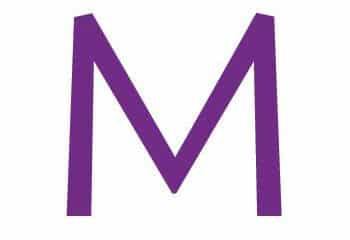Dr. Hay Eytan Cohen Yanarocak: Israel-Turkey relations could continue improving.

By Rina Bassist, AL-MONITOR, 19.03.2021
Energy ministers of Israel, Cyprus and Greece signed March 8 a memorandum of understanding for a joint undersea power cable project. With this agreement, the three countries took a major step in bridging Asia and Europe and in connecting their national electricity grids.
Still, not everyone was happy about this move. Shortly after the signature ceremony, Turkey sent Israel and Greece diplomatic notes, warning both countries that they must seek its permission before any feasibility studies are carried out and before launching works on the proposed undersea power cable in eastern Mediterranean waters. A similar note was also sent to the European Union delegation in Turkey. Reports did not mention if Turkey sent such a diplomatic note also to Cyprus, the third partner in this venture.
Formally protesting the agreement, Ankara argued that the route of the planned cable, expected to be largely funded by the EU, transgressed Turkish territorial waters.
Israeli-Turkish relations have been very chilly in the past decade, ever since the 2010 Mavi Marmara flotilla incident, and more so since the 2014 Gaza war. Still, in recent months, before the US elections in November 2020, Ankara has been sending Jerusalem positive messages. Now, some officials in Jerusalem are expressing concerns over the memorandum with Greece and Cyprus damaging Turkey’s efforts of rapprochement.
Hay Eytan Cohen Yanarocak from the Jerusalem Institute for Strategy and Security is an expert on Israel-Turkey relations. For him, this new undersea power cable should not necessarily damage recent normalization attempts between the two countries.
“The announcement published by Turkey refers specifically to a disputed maritime zone located between Cyprus and Greece. So far, Israel avoided taking sides on this issue. The reason for this silence is that in Israeli eyes, this maritime dispute is a sovereignty issue that Greece, Cyprus and the EU must resolve vis-a-vis Turkey. Israel is not in the heart of this disagreement. In other words, Jerusalem estimates that Israel is not really relevant here,” said Cohen Yanarocak.
He noted that Israeli-Turkish relations are a bilateral issue, not directly affected by the multilateral issue of the power cable. The trend of rapprochement, or warming up of ties, has not been affected by this so far, he argued.
Cohen Yanarocak’s opinion is encouraging. He thinks bilateral ties could indeed continue ameliorating. Still, Jerusalem has been extremely cautious for the time being on Turkish rapprochement, letting Ankara do the courting. At the same time, Jerusalem continues at full speed to strengthen its strategic and energy alliance with Greece and Cyprus. Israeli diplomats explained to Al-Monitor that for Jerusalem, the conditions for restoring bilateral relations with Ankara are clear. Official Turkey and President Recep Tayyip Erdogan must stop issuing antisemitic-toned statements against Israel, and they must stop assisting Hamas. More specifically, they must stop harboring Hamas activists and avoid offering any of them passports.
This second requirement on Hamas has been mentioned on several occasions by Foreign Minister Gabi Ashkenazi. In Israeli eyes, this is a straightforward condition, but for Turkey, things are far from being simple. Turkey has been laboring for years to increase its investment in the Gaza Strip, but lately, it has also started investing in the West Bank, notably injecting $10 million in an industrial park being constructed in the city of Jenin. Israeli analysts estimate that ahead of the Palestinian elections, Turkey seeks to increase its influence both in Gaza and the West Bank. As such, severing ties with the military branch of Hamas could become a delicate operation for Ankara.
Going back to the assessment of Cohen Yanarocak. One of Erdogan’s advisers, Hakan Yurdakul, attended March 10 a European Jewish Parliament conference. The meeting focused on a renewed agenda between Israel and Turkey, and included also representatives of the Israeli Foreign Ministry. Addressing the conference, Yurdakul said both countries would benefit from the establishment of an economic committee for regional cooperation to explore areas of mutual interests.
Another positive sign was registered just one day earlier. It was an interview with the Turkish-Jewish weekly publication Salom with former Turkish Adm. Cihat Yayci. Yayci, who is considered close to Erdogan, repeated a proposal of his that had appeared last December in the academic review Turkeyscope, published by the Moshe Dayan Center for Middle Eastern and African Studies at Tel Aviv University. In this exceptional article, the former admiral called for the two countries to review together maritime borders, with a proposal for shared exclusive economic zones in the Mediterranean Sea.
For Ankara to continue with these positive signs and messages, Jerusalem will have soon to make up its mind and react. Or else, Ankara could start believing that Jerusalem’s continuous silence is actually a no.





 - בניית אתרים
- בניית אתרים